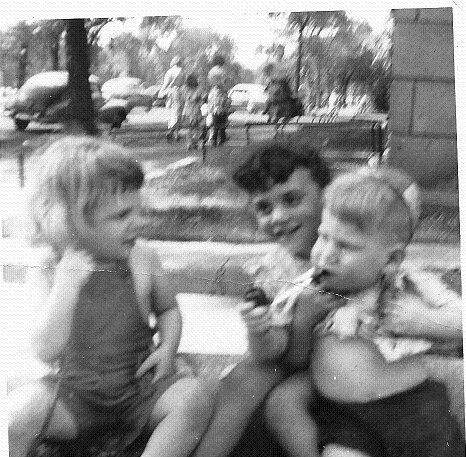Let’s face it, unless get you hit by a truck when crossing the street or contract an incurable disease, if you live long enough you will suffer some form of dementia. One way to be overcome by dementia is if you have Alzheimer Disease. But dementia can also occur without it. There are different brain abnormalities when one has Alzheimer but not everyone is capable of making such a discernment. The symptoms are similar in that the person does not remember people or things he or she used to do. There is a greater social stigma associated with Alzheimer than dementia. Society tends to treat those afflicted with Alzheimer as a lost cause.
I’m not a doctor or medical expert or even have a modicum of training. What I do know about forgetfulness is based on observations I made during the several years my father was confined to a nursing home. Dad didn’t always remember the names of people who would drop by to visit. When the visitor would kid him he would then say that of course he knew who they were and he truly did. In no sense of the word were they strangers to him- just a somewhat fuzzy recall. He always knew Ma and me because we were practically there every day. He would ask about Ma during my evening visits and sometimes refuse to believe that she was there earlier in the day but he never lost hope or got depressed because somewhere in the back of his mind he knew he would see both of us as soon as the nightmare going on inside him was gone. (The nightmare was his inability to stand let alone walk. He relied on others to get him in and out of bed and into a wheelchair)
It helps to be there for a relative when they are in a nursing home. Advocating for them on a regular basis ensures that they will be treated better by staff. Those who seem abandoned to their lonely fate are too often ignored and are more like a full Alzheimer resident.
The nursing home administrator told me that my father’s cognitive ability hardly receded due to the medicine they administered and the fact that we were visiting him almost daily. He put more emphasis on the fact that they figured on the correct dosage to give him than our visits and we strongly disagreed. The administrator was rarely on the floor where the residents lived. I was and I saw the distinct differences between those with and without visitors.
Because my father had been a professional singer, we figured that occupying our visits with things that were music related would be helpful. This included watching the American Idol and America’s Got Talent competition shows. It gave him the opportunity to express his opinion on whom he thought could truly sing. We played tapes of his favorite singers and even of rehearsal sessions he had done more than thirty years earlier.
I always tried to give him the opportunity to make his own decisions. More often I gave him an option on even the simplest of things and let him tell me the choice he preferred. I felt this was a good exercise of the mind. The nurses and nurses aids would kid with me that he was the only one with whom they could hold a conversation.
On the last day of his life, seven hours before he passed away, his last words to me were: “Can’t you stay?†I apologized and explained to him that I could not. In retrospect, I could probably have said the same thing to him and he would probably have given a similar answer that he could not- that his time was up. I was grateful that until the very last breath he held on to whatever memories were important to him.
For a good start to understanding more about Alzheimer and dementia in general, check out the following site:
http://www.healthcentral.com/alzheimers/c/118/8646/dementia-disease/
Note: We do not promote any medical practice nor claim to have medical knowledge. Nor do we endorse the opinions of the content of the site listed above.
